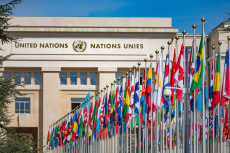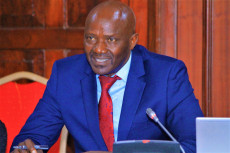- The law states that public officers must declare and seek approval before engaging in any side jobs that could conflict with their official duties.
- The Conflict of Interest Law is designed to promote integrity and transparency in public service by preventing public officers from using their positions for personal gain.
President William Ruto has assented to the Conflict of Interest Bill, 2023 and the Social Protection Bill, 2025.
The event took place on July 30, 2025 at State House Nairobi.
The Conflict of Interest Law is designed to promote integrity and transparency in public service by preventing public officers from using their positions for personal gain.
The key features of the law guide public officers in their duties. The law states that public officers must declare and seek approval before engaging in any side jobs that could conflict with their official duties.
Moreover, it bans preferential treatment. Officers cannot give special favors or be influenced by future job offers.
Read More
Additionally, it indicates that the Ethics and Anti-Corruption Commission is now the central body enforcing these rules.
Citizens can now report violations, and investigations must be completed within 90 days.
According to President Ruto, the enactment of a law on conflict of interest is a bold step in the war against corruption. “It sets clear rules that ensure public officers serve with integrity, transparency and accountability,” he said.
The President says that by anchoring enforcement of the law under the Ethics and Anti-Corruption Commission, the state is strengthening institutions and restoring trust in public service.
On its part, the Social Protection Bill creates a unified, rights-based framework that guarantees non-contributory support for vulnerable Kenyans in all stages of life, ensuring dignity, equity, and resilience, and coordinated by the National Government and counties.
The law replaces the outdated Social Assistance Act and introduces a rights-based, life-cycle approach to welfare. It also aims to protect Kenyans from poverty, disasters, job loss, and other shocks by offering both cash and non-cash support.











